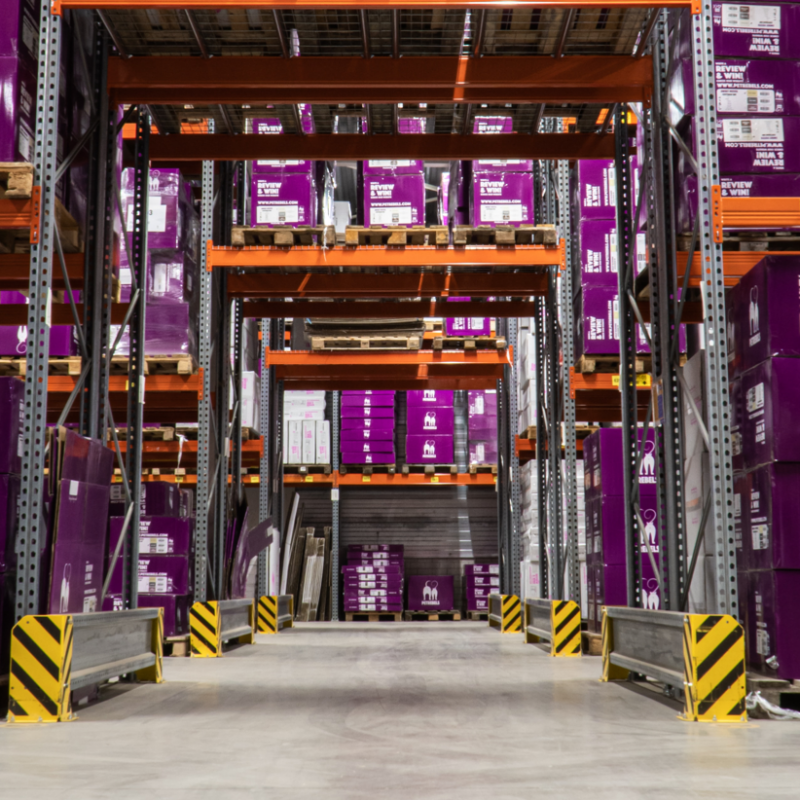Are you planning to negotiate logistics contracts for your business? While negotiations can be tricky, logistics contract negotiations require a special skill set. Even a small mistake can lead to long-term consequences that may affect your supply chain and your bottom line.
In this article, we will highlight the 5 common mistakes you must avoid when negotiating logistics contracts. We will also provide you with tips and best practices to help you negotiate the best deal for your business.
Introduction
Logistics contract negotiations are an integral part of business operations. Companies negotiate contracts with logistics service providers to ensure that their goods are delivered on time, at the right location, and at the best price. While negotiations can be challenging, they are necessary to secure the best deal for your business.
Negotiating logistics contracts requires a unique set of skills and knowledge. In this article, we will discuss the common mistakes that businesses make during logistics contract negotiations and how to avoid them. We will also provide you with tips to help you negotiate a better deal.
Mistake 1: Failing to Understand Your Business Needs
The first mistake businesses make when negotiating logistics contracts is failing to understand their business needs. Without a clear understanding of your business needs, you may end up signing a contract that does not align with your business goals. This mistake can lead to increased costs, delays in delivery, and lower customer satisfaction.
To avoid this mistake, you must clearly define your business needs before entering into negotiations. This includes understanding your supply chain, the volume of goods you need to transport, the delivery locations, and your budget. By having a clear understanding of your business needs, you can negotiate a contract that aligns with your goals and helps you achieve your business objectives.
Mistake 2: Failing to Conduct Due Diligence
The second mistake businesses make when negotiating logistics contracts is failing to conduct due diligence. Due diligence involves researching potential logistics service providers to ensure that they are capable of meeting your business needs. Without proper due diligence, you may end up signing a contract with a service provider that is not reliable or trustworthy.
To avoid this mistake, you must conduct due diligence on potential logistics service providers. This includes researching their reputation, experience, and certifications. You can also ask for references from their past clients to get a better understanding of their service quality. By conducting due diligence, you can ensure that you are working with a reliable logistics service provider.
Mistake 3: Focusing Only on Price
The third mistake businesses make when negotiating logistics contracts is focusing only on price. While price is an important factor, it should not be the only factor that you consider when negotiating a contract. Focusing solely on price can lead to compromises in service quality or reliability, which can affect your business operations in the long run.
To avoid this mistake, you must consider other factors such as service quality, reliability, and flexibility when negotiating a contract. While price is important, it should not be the only factor that you consider. By considering other factors, you can ensure that you are working with a logistics service provider that can meet your business needs.
Mistake 4: Not Paying Attention to Contract Terms and Conditions
The fourth mistake businesses make when negotiating logistics contracts is not paying attention to contract terms and conditions. It’s easy to get caught up in negotiating pricing and service levels, but it’s equally important to pay attention to the terms and conditions of the contract.
Failing to review the terms and conditions of a logistics contract can lead to unexpected surprises down the road. For example, the contract may include hidden fees, penalties for late delivery, or limitations on liability that could negatively impact your business.
To avoid this mistake, you should review the terms and conditions of the contract carefully and seek legal advice if necessary. Don’t be afraid to negotiate terms that don’t align with your business needs or goals. By paying attention to the contract terms and conditions, you can ensure that the logistics contract supports your business growth and success.
Mistake 5: Not Establishing Clear Communication Channels
The fifth mistake businesses make when negotiating logistics contracts is not establishing clear communication channels. Effective communication is essential to the success of any business relationship, and logistics contract negotiations are no exception. Without clear communication channels, misunderstandings can arise, leading to delays and other issues.
To avoid this mistake, you must establish clear communication channels with your logistics service provider. This includes identifying the person responsible for managing the contract, establishing communication protocols, and setting up regular check-ins to review progress. By establishing clear communication channels, you can ensure that you are on the same page with your logistics service provider and avoid misunderstandings.
Tips for Successful Logistics Contract Negotiations
Now that you know the common mistakes to avoid when negotiating logistics contracts, here are some tips to help you negotiate a successful contract:
- Define your business needs clearly: Before negotiating a contract, define your business needs clearly, including your budget, volume of goods, delivery locations, and timelines.
- Conduct due diligence: Research potential logistics service providers thoroughly to ensure that they have the experience and expertise to meet your business needs.
- Consider all factors: Don’t focus only on price; consider service quality, reliability, and flexibility when negotiating a contract.
- Pay attention to contract terms and conditions: Review the terms and conditions of the contract carefully, and seek legal advice if necessary.
- Establish clear communication channels: Set up regular check-ins and establish clear communication protocols to avoid misunderstandings.
By following these tips, you can negotiate a successful logistics contract that meets your business needs and aligns with your goals.
FAQs
- What are the common mistakes to avoid when negotiating logistics contracts?
The common mistakes to avoid when negotiating logistics contracts include failing to understand your business needs, failing to conduct due diligence, focusing only on price, not paying attention to contract terms and conditions, and not establishing clear communication channels.
- Why is due diligence important when negotiating logistics contracts?
Due diligence is important when negotiating logistics contracts because it ensures that you are working with a reliable and trustworthy logistics service provider.
- Should I focus only on price when negotiating a logistics contract?
No, you should not focus only on price when negotiating a logistics contract. Consider other factors such as service quality, reliability, and flexibility.
- Can I negotiate the terms and conditions of a logistics contract?
Yes, you can negotiate the terms and conditions of a logistics contract. It’s important to review them carefully and seek legal advice if necessary.
- How can I establish clear communication channels with my logistics service provider?
You can establish clear communication channels with your logistics service provider by identifying the person responsible for managing the contract, setting up regular check-ins, and establishing clear communication protocols.
Conclusion
Negotiating logistics contracts can be challenging, but it’s an essential part of business operations. By avoiding common mistakes and following best practices, you can negotiate a successful contract that meets your business needs and aligns with your goals. Remember to define your business needs clearly, conduct due diligence, consider all factors, pay attention to contract terms and conditions, and establish clear communication channels.
With these tips, you can negotiate a logistics contract that supports your business growth and success.



